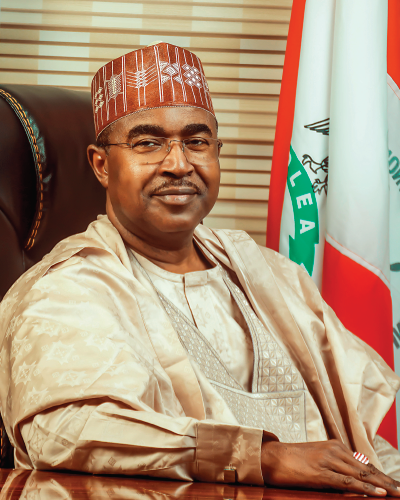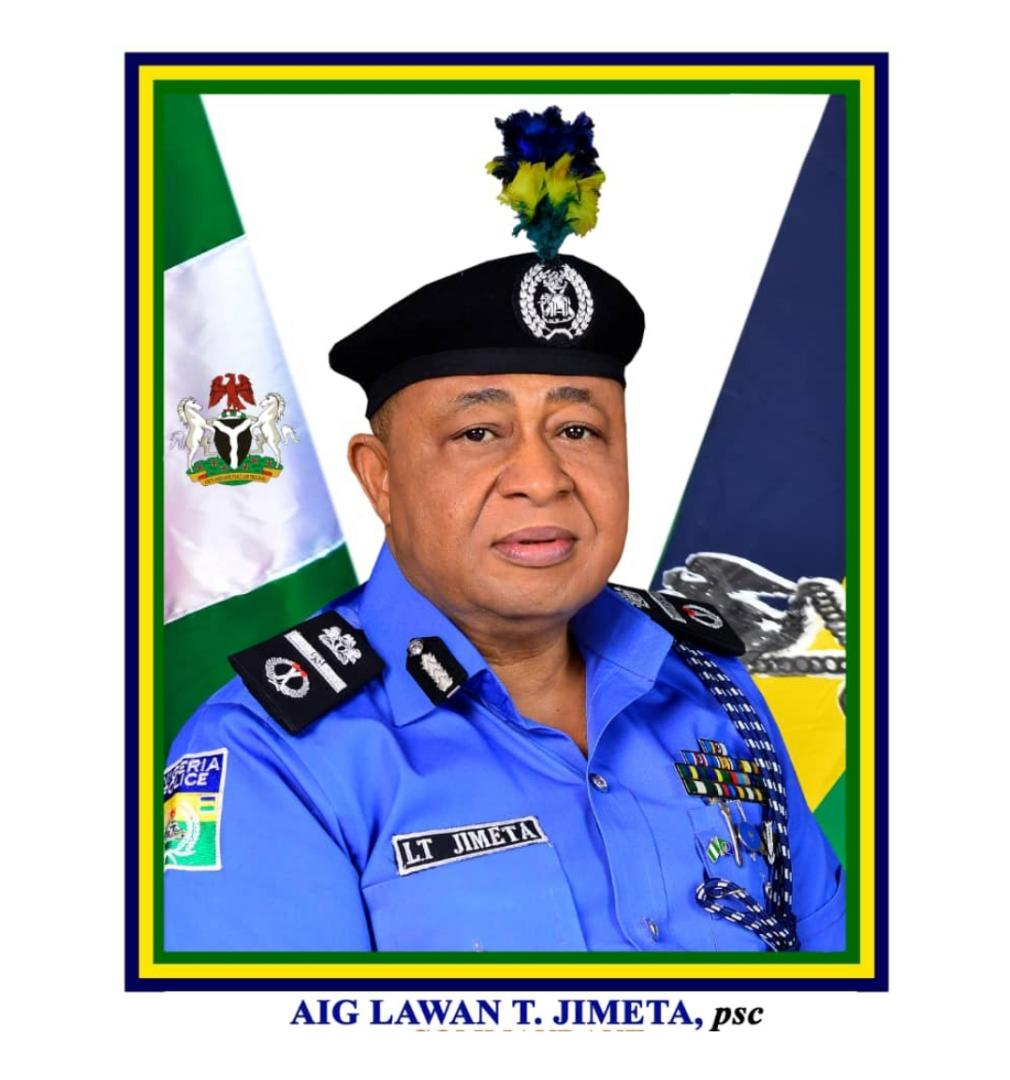
NDLEA, A FEDERAL AGENCY RAISES PERFORMANCE BAR
According to the 2018 UNODC report, “Drug use in Nigeria”—one in seven persons had used a drug in the past year. Also, one out of five individuals who had used drug in the past year is suffering from drug-related disorders.
Drug abuse is a factor of crime, it is a driver of criminality! It has been the cause of many crimes such as theft, burglary, prostitution, and shoplifting. The most commonly abused drugs in the country are tramadol and codeine.
Tramadol is a synthetic opioid analgesic used to treat moderate to severe pain. It is the most abused medicine among addicts. Overdose causes arrhythmias, cramps, coma and death. In Nigeria, it is regulated as the 50 and 100mg dosage strengths but very high dosage forms of 200 and 225mg have infiltrated the market. There is also noticeable increase in smuggling of Tramadol capsules. Tramadol abuse disorder is associated with physical withdrawal symptoms and compulsive behaviour.
Codeine can be obtained as an over-the-counter painkiller and cough medicines in Nigeria but consumers often become addicted. The risk of addiction is great, and in many countries including Nigeria, consumers are required to have prescriptions for all opioid-based medications.
The misuse of codeine products contributes to severe health outcomes including liver damage, stomach ulceration, respiratory depression, coma and death.
According to the 2018 UNODC report, “Drug use in Nigeria”—one in seven persons had used a drug in the past year. Also, one out of five individuals who had used drug in the past year is suffering from drug-related disorders.
Drug abuse is a factor of crime, it is a driver of criminality! It has been the cause of many crimes such as theft, burglary, prostitution, and shoplifting. The most commonly abused drugs in the country are tramadol and codeine.
Tramadol is a synthetic opioid analgesic used to treat moderate to severe pain. It is the most abused medicine among addicts. Overdose causes arrhythmias, cramps, coma and death. In Nigeria, it is regulated as the 50 and 100mg dosage strengths but very high dosage forms of 200 and 225mg have infiltrated the market. There is also noticeable increase in smuggling of Tramadol capsules. Tramadol abuse disorder is associated with physical withdrawal symptoms and compulsive behaviour.
Codeine can be obtained as an over-the-counter painkiller and cough medicines in Nigeria but consumers often become addicted. The risk of addiction is great, and in many countries including Nigeria, consumers are required to have prescriptions for all opioid-based medications.
The misuse of codeine products contributes to severe health outcomes including liver damage, stomach ulceration, respiratory depression, coma and death.
Nigeria is also not immune to the distribution of hard drugs like cocaine and heroin among others. According to 2022 UNODC Report, worldwide cocaine manufacture was at a record high in 2020, growing 11 per cent from 2019 to 1,982 tons. Cocaine seizures also increased, despite the Covid-19 pandemic, to a record 1,424 tons in 2020. Nearly 90 per cent of cocaine seized globally in 2021 was trafficked in containers by sea. Seizure data suggest that cocaine trafficking is expanding to other regions outside the main markets of North America and Europe, with increased levels of trafficking to Africa and Asia.
Trafficking of methamphetamine continues to expand geographically, with 117 countries reporting seizures of methamphetamine in 20162020 versus 84 in 20062010. Meanwhile, the quantities of methamphetamine seized grew five-fold between 2010 and 2020. Opium production worldwide grew seven per cent between 2020 and 2021 to 7,930 tons – predominantly due to an increase in production in Afghanistan.
To tackle the problem of drugs trafficking and save Nigeria from the consequences of drugs abuse, the National Drugs Law Enforcement Agency (NDLEA) under the leadership of its chairman, Brigadier General Buba Marwa (rtd) has put the drugs barons on the run. It has made incredible seizures that have attracted the attention of the world. NDLEA is indeed a federal agency worthy of commendation by all Nigerians!
In June this year, the Apapa Special Area Command of the NDLEA disclosed that it had recorded numerous seizures of illicit drugs worth N6 billion in one week in Apapa area of the state. The seizure which included 1,518kgs of Tafrodol brand of Tramadol (120grms) and Tramadol (225mg &250mg) weighing 3,553 kilograms, according to the Area Commander, Mr Ameh Inalegwu, was a demonstration of the resolve of the command to bring down non-cooperating entity within the maritime space within the command’s jurisdiction. Additional seizures of 14, 0800 kilograms of Cough Syrup with Codeine was made in January 2022.
In September NDLEA busted a major warehouse in a secluded estate in the Ikorodu area of Lagos State, where over N194 billion worth of crack were seized. Its director, Media and Advocacy, Femi Babafemi, said the illicit drugs, which were 1.8 tons (1,855 kilogrammes), were worth more than $278.2 million. He said that it was the equivalent of about N194.7 billion in street value. The NDLEA spokesperson said the seizures appeared to be “the biggest singular cocaine seizure in the history of Nigeria’s premier anti-narcotic agency”. According to him, at least, four drug barons, including a Jamaican and the warehouse manager have been arrested.
Beyond the seizures what can government do to rid the country of drugs abuse and trafficking? The government should provide more employment opportunities for the youths and review existing drug laws to include stiffer penalties for offenders. Allocation of funds to drug-related agencies should be increased to strengthen the fight against the abuse of drugs. Enforcement activities should be more effective through strengthening the activities of taskforce at Federal and State governments levels. Nigerian borders should be well protected with surveillance activities by responsible agencies. Community-based education awareness in the form of mass campaigns through media houses both print and electronic, adverts, flyers, banners, radio jingles, lectures and other programmes in religious places and public functions should be created and sustained.
Secondary school-based programmes aimed at encouraging healthy practices and lifestyle among adolescents would help to prevent substance use. There is also a need for periodic review of the curriculum in schools to introduce topics centred on dangers of drug abuse. Parents need to educate their children early enough on the risks associated with drug abuse. They should monitor the children closely and know the kinds of friends they are keeping.
As a preventive measure and to protect the society from drugs, National Assembly should pass a law or an amendment to the NDLEA Act to make it mandatory for public officials, including elective office seekers from top to bottom, to be tested for drugs by the NDLEA as condition to participate in elections or to be appointed into public offices. The Kano State government has shown that this is possible and could help keep drug addicts out of public office and save the country from the danger these people pose.
In 2021, the governor of Kano State, Abdullahi Ganduje directed
contestants seeking All Progressives Congress, APC’s executive council positions to undergo a mandatory drug test. Thirteen councillorship aspirants in Kano had early in the year, tested positive for hard drugs. The governor directed all the contestants to report to the National Drug Law Enforcement Agency in the state for the screening.
This was contained in a statement issued by the Commissioner for
Information, Muhammad Garba. “The directive is part of government’s policy, to rid Kano of illicit substances,” said Garba. He warned that no contestant would be screened without undergoing the mandatory drug test. “Similar tests were carried out for contestants into local government election, as well as political appointees including members of the state executive council before offering them a portfolio,” added the statement.
This idea is not new. In April this year, NDLEA asked political parties to make drug integrity tests part of the screening requirement for persons seeking political offices in the 2023 elections. NDLEA chairman, Buba Marwa, said this at the 2022 Best Performing Commands Awards ceremony held in Abuja. Marwa said that he has written a letter to the chairman of the APC to conduct drug tests on all the party’s aspirants, adding that he will write to the PDP and other political parties. “For politicians, we have long advocated and I take the opportunity again to repeat the advocacy that when they run for public office, it demands a lot of responsibility from the person and we need to be certain if he’s a person that is already a drug addict/user who will spend all the money he’s given for public service to consume cocaine and his head will not be in a stable condition to handle the affairs he has been entrusted with,” he said.
Few days ago, Nigerian Medical Association (NMA) recommended compulsory psychiatry test for presidential candidates ahead of the 2023 general election. Aligning with the NDLEA boss, the NMA president, Dr Uche Ojinmah, while speaking with PUNCH in Abuja listed the battery of tests that candidates should undergo to ascertain their state of health and fitness for office.
Ojinmah said, “We also want them to undergo psychiatric evaluation. It is the candid opinion of this columnist that everyone vying for political office should be drug free. Governing people is serious business that should not be entrusted to individuals under the influence of drugs of any sort.” That is like entrusting a bus full of people to a drunk. That risk is too great!



